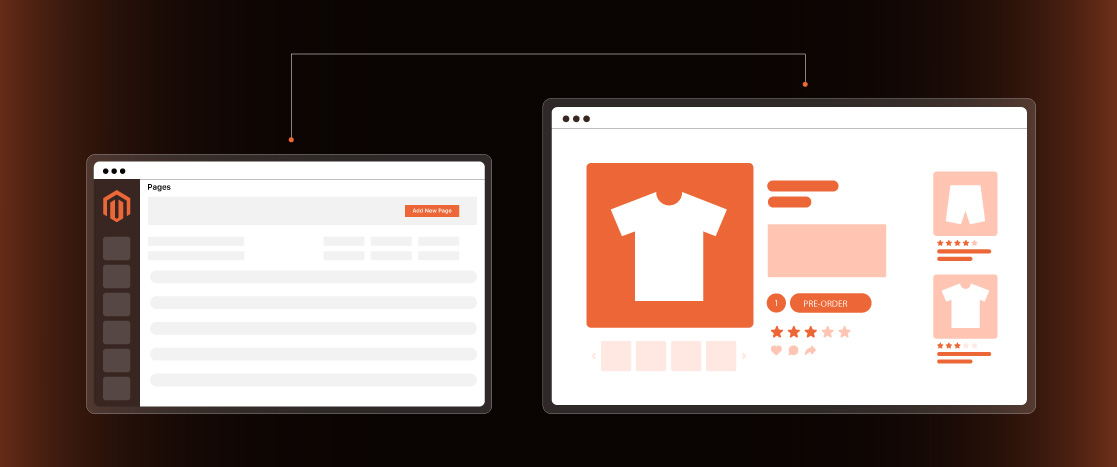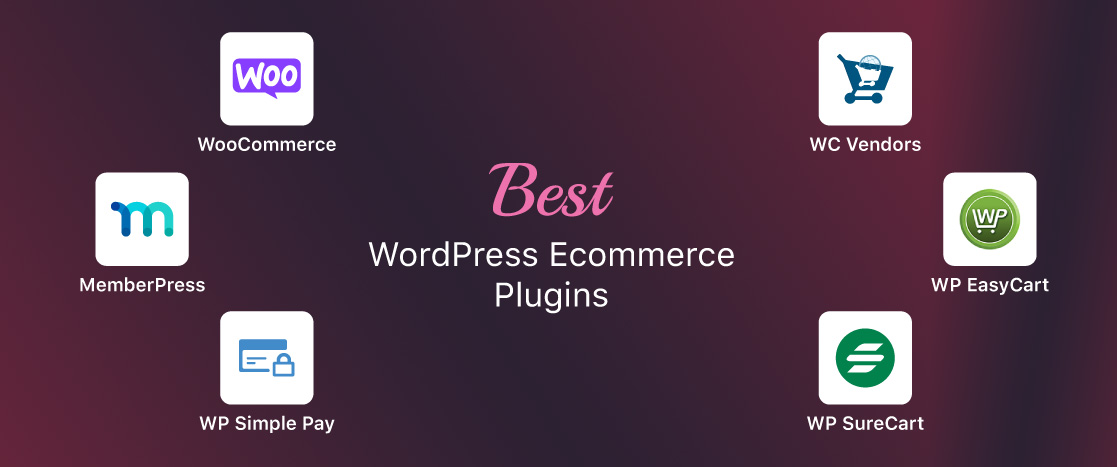
Ecommerce Security Strategies: Safeguard Your Online Store and Customer Data
In today’s rapidly evolving digital landscape, ecommerce has become a dominant force, allowing businesses to reach customers across the globe. However, as ecommerce continues to grow, so do the associated risks. Security has become a critical concern for online stores, especially as hackers and fraudsters find more sophisticated ways to exploit vulnerabilities. Failing to prioritize ecommerce security can result in devastating consequences, from financial loss to irreparable reputational damage. In this blog, we will explore key areas of ecommerce security, including fraud prevention, SSL certificates, best practices, and PCI-DSS compliance, and provide actionable tips to help safeguard your online store and protect customer data.
The Importance of Ecommerce Security in 2024
The ecommerce industry is expected to exceed $7 trillion by 2025, but with this growth comes a proportional increase in cybercrime. Online businesses must protect sensitive customer information, including payment details, addresses, and personal identities, or risk exposing themselves to breaches that could cost millions. In an era where trust is a valuable currency, ensuring that your ecommerce platform is secure is no longer optional—it’s an absolute necessity.
The consequences of neglecting ecommerce security can be far-reaching. A single data breach can lead to lost sales, legal penalties, and a damaged reputation that takes years to recover from. By implementing strong security measures, businesses protect themselves and foster trust with their customers, ultimately driving loyalty and revenue.
Ecommerce Fraud Prevention: Protect Your Business and Customers
Ecommerce fraud prevention is essential for protecting your business and customers from financial losses and data breaches. Fraudulent activities, such as identity theft, phishing, and using stolen credit cards, are on the rise, posing significant risks to online stores. Implementing effective fraud prevention strategies safeguards your revenue and helps maintain customer trust.
To combat fraud, businesses should invest in advanced fraud detection tools that monitor transactions in real-time, flagging suspicious activity before it can cause damage. Secure payment gateways, two-factor authentication (2FA), and encryption are key measures that add layers of protection. Verifying customer identities and keeping an eye on unusual buying patterns can further reduce the risk of fraudulent transactions.
By prioritizing ecommerce fraud prevention, businesses can avoid chargebacks, protect sensitive customer data, and build a secure shopping environment that fosters long-term loyalty and reduces financial risk.
What Is Ecommerce Fraud?
Ecommerce fraud refers to any illegal or deceptive activity conducted online, often aimed at stealing personal information, committing identity theft, or siphoning money from online businesses. Fraudsters use various techniques, such as phishing, chargebacks, or using stolen credit cards, to manipulate ecommerce systems. As these methods become more sophisticated, the need for robust fraud prevention strategies becomes essential.
How Ecommerce Fraud Affects Businesses
The effects of ecommerce fraud can be devastating for businesses of all sizes. Beyond the immediate financial loss from fraudulent transactions, businesses may face high chargeback fees, inventory loss, and damaged customer relationships. Additionally, fraudulent activities can tarnish a brand’s reputation, leading to a decline in customer trust. It’s important to note that some businesses are forced to close their operations due to the financial strain of fraud, making prevention all the more critical.
Top Ecommerce Fraud Prevention Tools for 2024
In 2024, numerous fraud prevention tools are available to help businesses detect and mitigate fraudulent activities. These tools use machine learning, AI-driven algorithms, and real-time data to identify unusual behavior, flagging suspicious transactions before they are completed. Solutions like Signifyd, Riskified, and ClearSale offer comprehensive fraud detection services, helping ecommerce businesses reduce the risk of fraud, minimize chargebacks, and maintain customer trust.
Strategies for Reducing Fraud in Your Online Store
Reducing the risk of fraud in your ecommerce store starts with a multi-layered approach. One effective strategy is implementing secure payment gateways that encrypt customer data during transactions. Requiring two-factor authentication (2FA) for customer accounts adds an extra layer of security, preventing unauthorized access. Additionally, verifying customer identities, monitoring for unusual transaction patterns, and using fraud prevention software can significantly reduce the likelihood of fraud.
SSL Certificates: The Backbone of Ecommerce Security
SSL certificates are a critical component of ecommerce security, acting as the backbone that safeguards sensitive data. They encrypt the information transferred between a customer’s browser and an online store, protecting personal details like credit card numbers, passwords, and addresses from being intercepted by hackers. When a website uses SSL, it displays a padlock icon in the browser, signaling to customers that their information is secure.
SSL certificates not only enhance data protection but also build trust with consumers. Search engines such as Google penalize websites without SSL by labeling them as “not secure,” which can deter potential buyers. Moreover, an SSL-secured site is essential for improving SEO rankings, further boosting its visibility and credibility. In an era where customer trust is paramount to ecommerce success, implementing SSL certificates is a non-negotiable step in ensuring a secure and reliable online shopping experience.
What Are SSL Certificates and Why Do You Need Them?
Secure Sockets Layer (SSL) certificates are a foundational element of ecommerce security. SSL encrypts the data transferred between a user’s browser and your ecommerce website, ensuring that sensitive information like credit card details, passwords, and addresses remain private. SSL certificates are not only vital for protecting customer data but also play a critical role in gaining consumer trust.
Without an SSL certificate, a website is vulnerable to data interception, which can result in stolen customer information. Moreover, search engines like Google label websites without SSL as “not secure,” which can deter potential customers from completing transactions on your site. Therefore, having an SSL certificate is not just a technical requirement; it’s also a trust-building measure for your customers.
Types of SSL Certificates for Ecommerce Websites
There are several types of SSL certificates available, each suited for different business needs. The most common types include:
- Single Domain SSL: Protects one domain and is ideal for smaller ecommerce sites.
- Wildcard SSL: Covers one domain and all its subdomains, making it suitable for businesses with multiple sections or sub-sites.
- Multi-Domain SSL: Allows for protection across multiple domains, which is ideal for larger ecommerce businesses with various stores.
Selecting the right type of SSL certificate depends on the size and structure of your website. It’s crucial to choose one that fits your security needs while ensuring seamless protection across all parts of your site.
How SSL Certificates Enhance Customer Trust
Consumers are becoming increasingly aware of online security, and many now look for the padlock icon in the browser address bar as a sign of a secure website. An SSL certificate helps build trust by showing customers that your site is secure, encrypted, and trustworthy. This increased sense of security can lead to lower cart abandonment rates and higher conversion rates, as customers are more likely to complete their transactions on a website they perceive as safe.
Step-by-Step Guide to Implementing SSL on Your Ecommerce Store
Implementing an SSL certificate on your ecommerce store is relatively straightforward:
- Choose the right SSL certificate for your needs.
- Purchase the SSL certificate from a trusted provider.
- Install the certificate on your server using your hosting provider’s control panel.
- Verify that the SSL certificate is properly installed by checking your URL for the padlock icon.
Once installed, ensure that all parts of your website, including images and external links, are served securely via HTTPS.
Ecommerce Security Best Practices: Building a Secure Online Store
Ecommerce security best practices are crucial for building a safe and trustworthy online store. With cyber threats continually evolving, businesses must adopt a proactive approach to protect customer data and maintain their platform’s integrity. Implementing secure payment gateways and encrypting sensitive information through SSL certificates are fundamental steps. Regularly updating your ecommerce platform, plugins, and software ensures you’re protected against known vulnerabilities and security exploits.
Firewalls and malware detection tools provide essential layers of defense against unauthorized access, while two-factor authentication (2FA) adds extra protection for customer and admin accounts. Additionally, conducting regular security audits helps identify and resolve potential weaknesses before hackers can exploit them.
Another key practice is educating customers about security, encouraging strong password habits, and cautioning against phishing schemes. These measures not only reduce risks but also build customer confidence, enhancing their trust and fostering long-term loyalty in a secure ecommerce environment.
Essential Security Features Every Ecommerce Website Must Have
A secure ecommerce website requires several essential features to protect against potential threats. These include firewalls, which prevent unauthorized access to your server, and Secure Payment Gateways, which encrypt transactions. Implementing two-factor authentication for customers and administrators adds an extra layer of protection against account takeovers. Regularly updating software, plugins, and security patches also helps close vulnerabilities that hackers might exploit.
How to Secure Customer Data: Best Practices for Data Protection
Protecting customer data is critical to maintaining trust and compliance with legal requirements like the General Data Protection Regulation (GDPR). Encryption is key to securing sensitive information, whether in transit or at rest. Additionally, businesses should minimize data collection to only what is necessary, implement strict access controls, and regularly audit data storage practices to ensure ongoing security.
Regular Security Audits: Why They’re Crucial for Ecommerce Stores
Security audits play a vital role in maintaining a secure ecommerce platform. These audits help identify potential vulnerabilities, outdated software, or misconfigurations that could lead to security breaches. Conducting regular security audits ensures that your ecommerce store remains compliant with industry standards and keeps you ahead of potential threats.
How to Educate Your Customers on Ecommerce Security
Educating customers about ecommerce security can go a long way in preventing attacks. Many security breaches occur due to weak passwords or phishing attacks that could have been avoided. Consider offering guidance on setting strong passwords, recognizing phishing emails, and understanding the importance of secure transactions. By empowering customers to protect themselves, you further strengthen your store’s overall security.
PCI-DSS Compliance Guide: Ensuring Secure Payment Processing
PCI-DSS compliance is essential for ensuring secure payment processing in ecommerce, protecting both businesses and customers from fraud and data breaches. The Payment Card Industry Data Security Standard (PCI-DSS) outlines a set of security measures that all businesses handling credit card transactions must follow. Compliance with PCI-DSS ensures that sensitive cardholder information, such as credit card numbers and personal details, is stored, processed, and transmitted securely.
To achieve PCI-DSS compliance, businesses must implement strong access control measures, encrypt sensitive data, and regularly test their security systems. Firewalls, secure payment gateways, and anti-virus software are necessary to prevent unauthorized access and protect against potential threats.
Non-compliance can result in hefty fines, reputational damage, and loss of customer trust. Therefore, maintaining PCI-DSS compliance not only protects against payment fraud but also demonstrates a commitment to high-security standards, fostering trust and credibility with customers in today’s digital marketplace.
What Is PCI-DSS and Why Does It Matter for Ecommerce?
The Payment Card Industry Data Security Standard (PCI-DSS) is a set of security guidelines designed to ensure secure payment processing for online transactions. These standards apply to any business that handles, processes, or stores credit card information. PCI-DSS compliance is critical for ecommerce stores because it reduces the risk of payment fraud and helps businesses avoid costly penalties for non-compliance.
PCI-DSS Compliance Levels: Where Does Your Business Stand?
PCI-DSS compliance is divided into four levels, depending on the number of transactions your business processes annually. Level 1, the highest level, is for businesses processing over 6 million transactions per year, while Level 4 applies to businesses with fewer than 20,000 annual transactions. Understanding your compliance level is essential to ensure you’re meeting the specific security requirements applicable to your business size.
Best Practices for Achieving and Maintaining PCI-DSS Compliance
Achieving and maintaining PCI-DSS compliance is vital for secure payment processing. Key best practices include regularly testing security systems and processes to identify vulnerabilities and implementing secure payment gateways that encrypt cardholder data during transactions. Access to sensitive cardholder information should be restricted to authorized personnel only, minimizing the risk of internal breaches. Additionally, keeping firewalls and anti-virus software up to date is crucial for defending against external threats.
By adhering to these practices, businesses can effectively safeguard customer data, prevent potential data breaches, and ensure compliance with industry standards, enhancing both security and customer trust.
PCI-DSS Compliance Tools and Resources for Ecommerce Businesses
Many tools and resources are available to help businesses achieve PCI-DSS compliance. Solutions such as Trustwave and ControlScan offer automated compliance services, including vulnerability scanning and reporting. These tools simplify the process of maintaining compliance and provide businesses with peace of mind knowing their payment processes are secure.
Conclusion
Ecommerce security is an ongoing commitment that demands continuous vigilance and adaptation to the ever-evolving landscape of cyber threats. To protect both your business and customers, it’s essential to implement robust security measures like fraud prevention tools, SSL certificates, and PCI-DSS compliance, along with industry best practices. These measures not only secure sensitive data but also foster trust, ensuring that your customers feel safe when making purchases on your platform.
Prioritizing security is more than just protecting transactions—it’s about creating a seamless, worry-free shopping experience. When customers trust your website, they are more likely to return, contributing to long-term business success. Neglecting security, on the other hand, can result in financial loss, damage to your brand’s reputation, and a loss of customer loyalty. By making ecommerce security a top priority, you’re not just safeguarding your business but also building a foundation for sustained growth and customer satisfaction.





